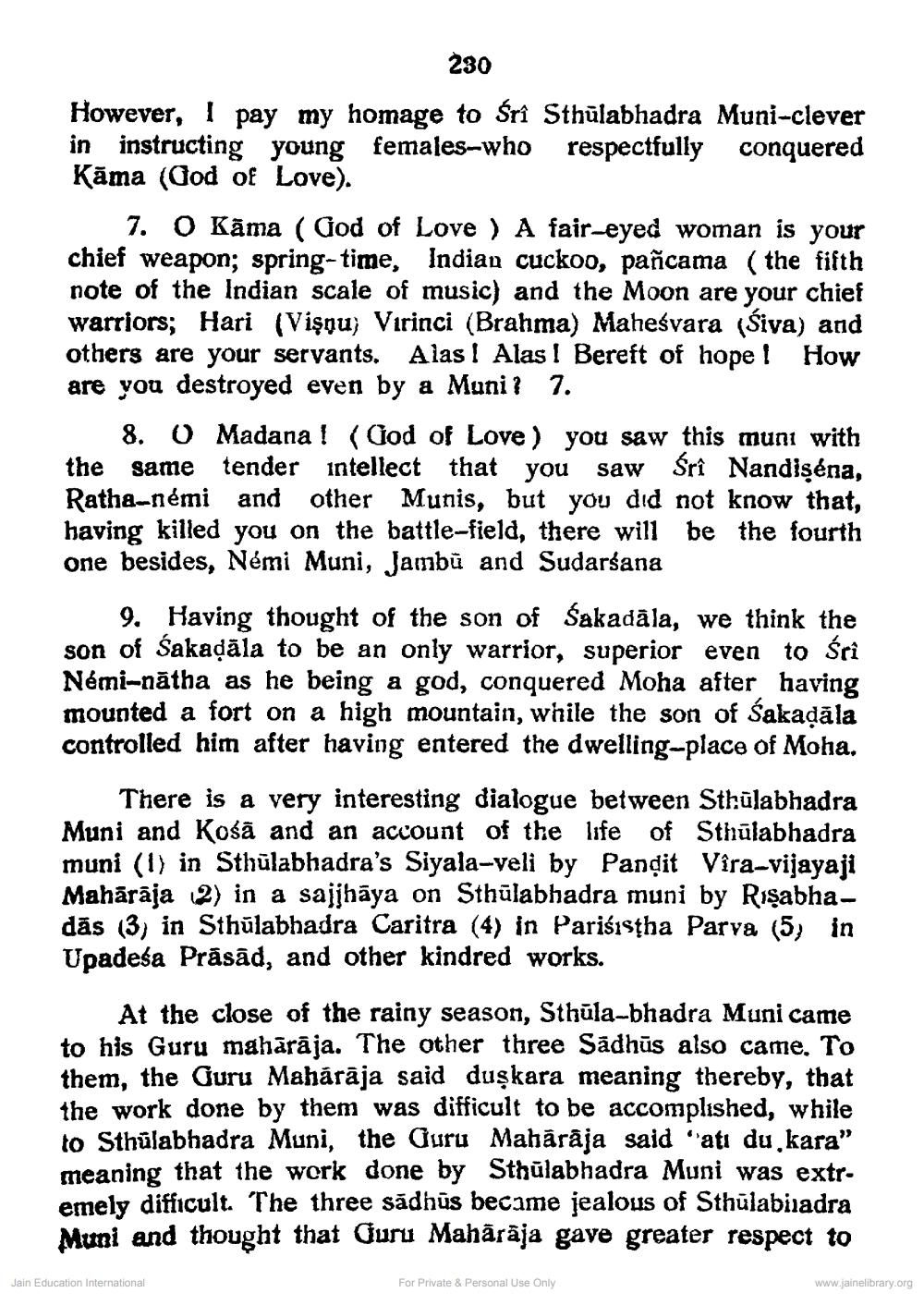________________
230
However, I pay my homage to Śrî Sthulabhadra Muni-clever in instructing young females-who respectfully conquered Kāma (God of Love).
7. O Kāma (God of Love) A fair-eyed woman is your chief weapon; spring-time, Indian cuckoo, pañcama (the fifth note of the Indian scale of music) and the Moon are your chief warriors; Hari (Vişņu) Virinci (Brahma) Maheśvara (Śiva) and others are your servants. Alas! Alas! Bereft of hope! How are you destroyed even by a Muni? 7.
8. O Madana! (God of Love) you saw this munt with the same tender intellect that you saw Śri Nandiṣéna, Ratha-némi and other Munis, but you did not know that, having killed you on the battle-field, there will be the fourth one besides, Némi Muni, Jambu and Sudarsana
9. Having thought of the son of Śakadala, we think the son of Sakaḍāla to be an only warrior, superior even to Śri Némi-natha as he being a god, conquered Moha after having mounted a fort on a high mountain, while the son of Śakaḍāla controlled him after having entered the dwelling-place of Moha.
There is a very interesting dialogue between Sthulabhadra Muni and Kośā and an account of the life of Sthulabhadra muni (1) in Sthulabhadra's Siyala-veli by Pandit Vira-vijayaji Mahārāja (2) in a sajjhaya on Sthulabhadra muni by Risabhadās (3) in Sthulabhadra Caritra (4) in Parisistha Parva (5) in Upadesa Prasad, and other kindred works.
At the close of the rainy season, Sthula-bhadra Muni came to his Guru mahārāja. The other three Sadhus also came. To them, the Guru Mahārāja said duşkara meaning thereby, that the work done by them was difficult to be accomplished, while to Sthulabhadra Muni, the Guru Mahārāja said "atı du kara" meaning that the work done by Sthulabhadra Muni was extremely difficult. The three sadhūs became jealous of Sthūlabiladra Muni and thought that Guru Mahārāja gave greater respect to
Jain Education International
For Private & Personal Use Only
www.jainelibrary.org




